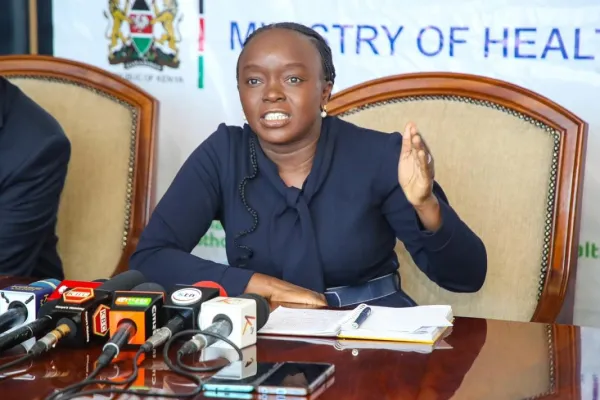SHIF premiums: Govt to assess income of the self-employed

SHIF premiums: Govt to assess income of the self-employed
The government has developed a testing tool to assess the income and wealth of self-employed Kenyans, as it moves to estimate how citizens will make contributions for their health insurance under the new Social Health Insurance Fund (SHIF).
"We have people who are self-employed so they have an income so they know how much they make. We have a means-testing tool which is a scientific tool that has been developed and it is self-testing. It is you saying that this is me, I am in an informal setting and this is how much I make in a year and therefore the calculation for my 2.75 percent will be this much," Health CS Susan Nakhumicha explained during a TV interview.
The tool will also categorize those with zero income, ensuring they are supported by the government. However, Nakhumicha cautioned against underreporting income to reduce contributions, noting that the government will study economic characteristics, such as lifestyle and personal belongings, to verify income categories.
"You cannot hide your economic status. If I see the watch you wear, I can estimate your income. I urge Kenyans to be honest, as this is about their health," the CS stated.
She noted that everyone would benefit from a consistent benefit package and highlighted that the government will observe economic characteristics like housing and luxury items to assess contributions.
The CS added that President Ruto would announce the SHIF registration date soon, and NHIF cards will continue to be valid alongside SHIF during the initial rollout.
In a separate forum Health Principal Secretary Mary Muthoni said that the NHIF remains active and supportive for Kenyans using the cards, noting that NHIF will continue to function until the government fully implements SHIF.
Read also: Reprieve as eight million vaccines secured
"Some Kenyans have suffered for long with NHIF in place, that is why President William Ruto passed this scheme to help the ordinary Kenyan without a job or with a limited income access better healthcare," Ms Muthoni explained.
SHIF aims to include all Kenyans, from high-income earners to low-income earners, with higher contributions from those with higher incomes, the PS explained.
Under the new regulations, Kenyans will pay 2.75 percent of their gross salaries to the health scheme. "We want it to be accessible to Kenyans who have no jobs. We do not want anyone to be sent back home when they go to the hospital if they do not have the money," she affirmed.
SHIF deductions will start on July 1 following the President's enactment of four healthcare bills in October 2023. Ruto announced that the new law would enable Kenyans to pay as little as Ksh300.
"The Critical Illness Fund, established by the new law, will cover costs for illnesses like cancer, ensuring no Kenyan has to sell property to pay medical bills," Dr Ruto stated in March.
Kenyans must register anew to access services under the new healthcare regulations. However, the SHIF has faced several challenges, including court orders and public opposition. The court initially froze the implementation of the Social Health Insurance Act of 2023, but these orders were lifted in January 2024.



